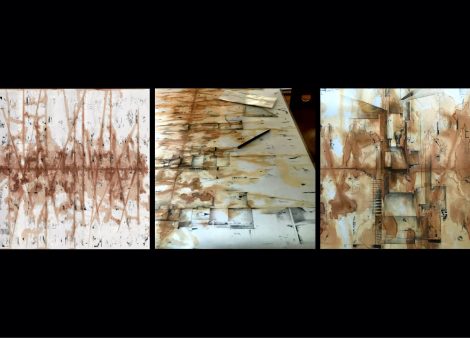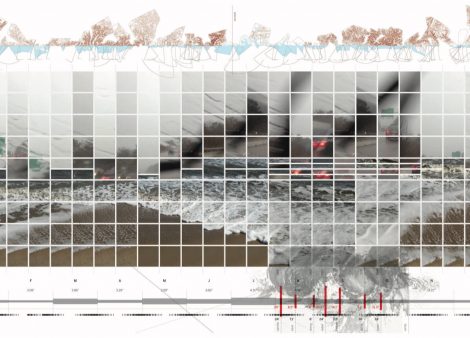Design with Wetness
Anuradha Mathur und Dilip da Cunha
University of Pennsylvania und Harvard University/Columbia University
2019

Event
Topic
Why do we differentiate between land and water? This question was the starting point of the lecture held by the two landscape architects Anuradha Mathur and Dilip da Cunha. It is also the guiding principle in their entire practice of design and in the projects they implement around the world.
In addition, Anuradha Mathur and Dilip da Cunha highlighted the land-centric concepts and infrastructures of the current land development practice that have led to a subjugation of the element of water. The two speakers ventured thinking along new lines, discussing how the increasing future presence of water can build the foundation for novel forms of sustainable design in landscape planning.
Abstract
The lecture dealt with their current project, Ocean of Rain, which builds on the latest book by Dilip da Cunha, The Invention of Rivers (2019), in which he describes rivers as the result of a design practice that has cultivated land-centric concepts and infrastructures with a line separating water from land. Today, with the increasing frequency of floods and rising sea levels, the line of separation has come into sharp focus with proposals for walls, levees, natural protective measures and land retention schemes.
Links
Anuradha Mathur und Dilip da Cunha
Anuradha Mathur, an architect and landscape architect, is Professor at the Department of Landscape Architecture at the School of Design, University of Pennsylvania, in Philadelphia. Dilip da Cunha, an architect and planner based in Philadelphia and Bangalore, is co-director of the Risk and Resilience program at the Graduate School of Design, Harvard University, and Adjunct Professor in the Urban Design Program at Columbia University.In addition, they engage in collaborative research, practice and teaching activities in diverse cultural milieus such as Mumbai, Jerusalem, Bangalore, the Western Ghats (a mountain range in western India), the Sundarbans (the world’s largest mangrove forests in India’s state of West Bengal), Coastal Virginia and the US-Mexico border.
Rain and river, in other words, are not merely two moments in the water cycle, they are moments that begin two inquiries, two infrastructures, two modes of design.







